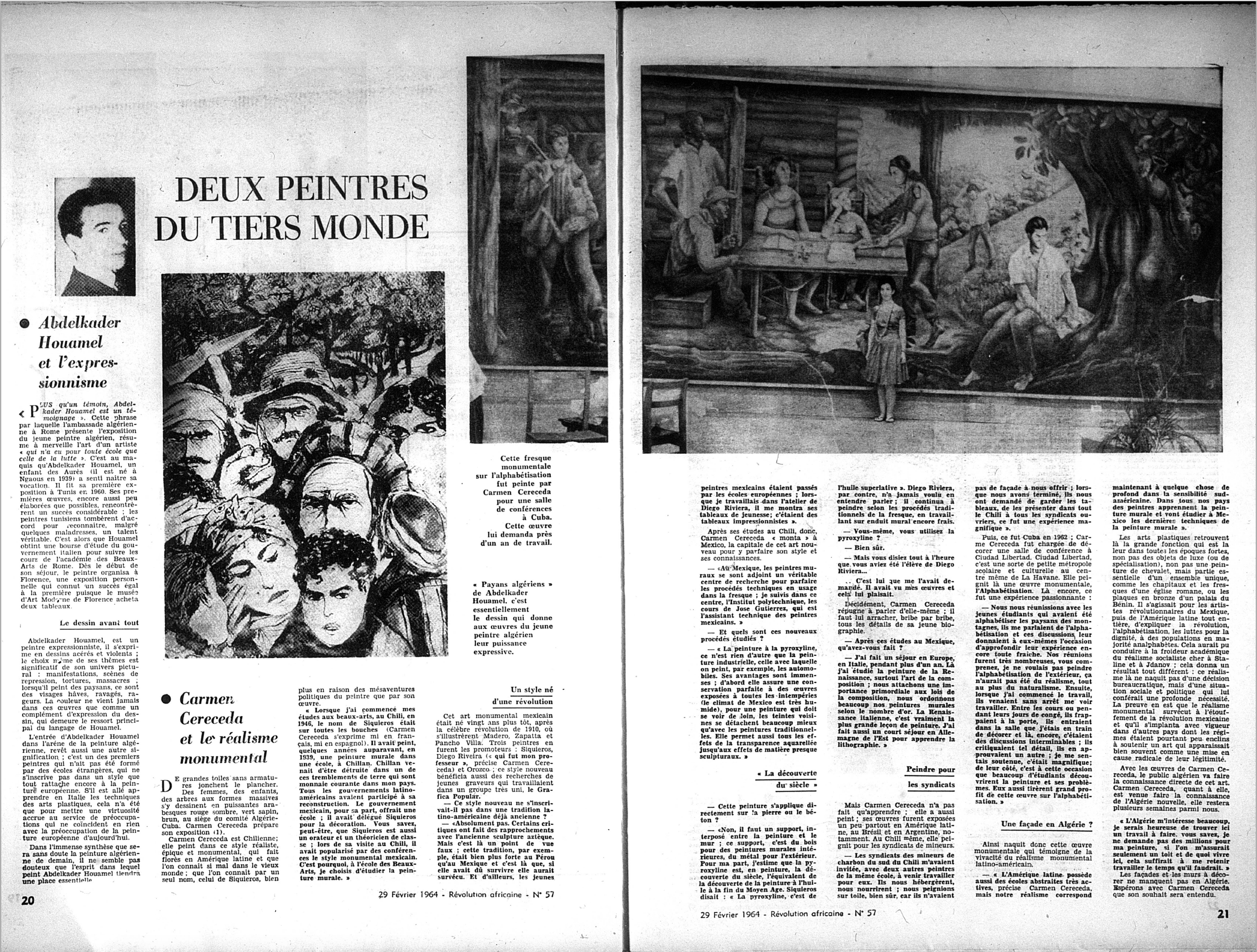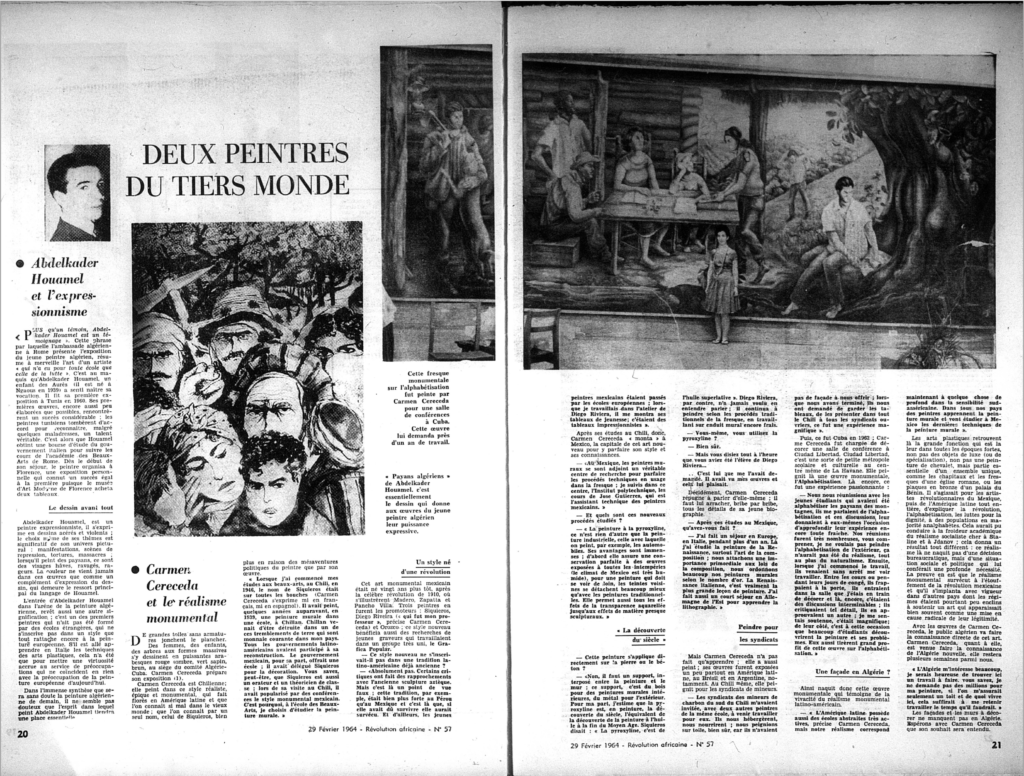
1964
Exhibition hall for Comité Algérie-Cuba, Algiers + an outdoor façade in Algiers
Cultural activity in Algeria in 1964 under the still relatively new government of the FLN featured exuberant propaganda articles announcing a platform of artistic exchange between revolutionary artists linked by their successes in overthrowing imperial occupation. The category of Third World was embraced, and different cultural arms of ruling parties went to work organizing both traveling exhibitions, and traveling experts meant to link up radically committed artists in a network of socialist development activity that differed both stylistically and ideologically from older, flatter Soviet models of realism associated with Stalin and Zhdanov.
Here, the visit of Chilean artist Carmen Cereceda to Algiers, sponsored by an organization called the Cuba-Algeria Committee, exemplifies this kind of initiative. Making use of Révolution Africaine as a promotional organ for the FLN with tricontinental scope (and multilingual editions), the Committee secured an interview with Cereceda that introduces readers to her revolutionary credentials and announces a commission for a wall painting to be completed in Algiers. In her comments to an unnamed reporter, Cereceda mentions the importance of Siquieros for her during her early education; her interest in up-to-date materials relating to industry and development (pyroxyline); her work with workers’ syndicates, including miners in Chile; her contributions to Cuban public art during a visit in 1962, during which time she completed a monumental fresco on the subject of literacy initiatives. Interestingly, the interview seems to emphasize the possibility of a “South American” aesthetic or school based on still-active struggles for workers, education, and equitable development that (the subtext goes) the state has come to support via syndicalist structures. These themes may be easily reflected back onto Algerian cultural politics at this moment, which make frequent allusions to a Maghrebi struggle as well as to Third World alliances.
Anneka Lenssen

